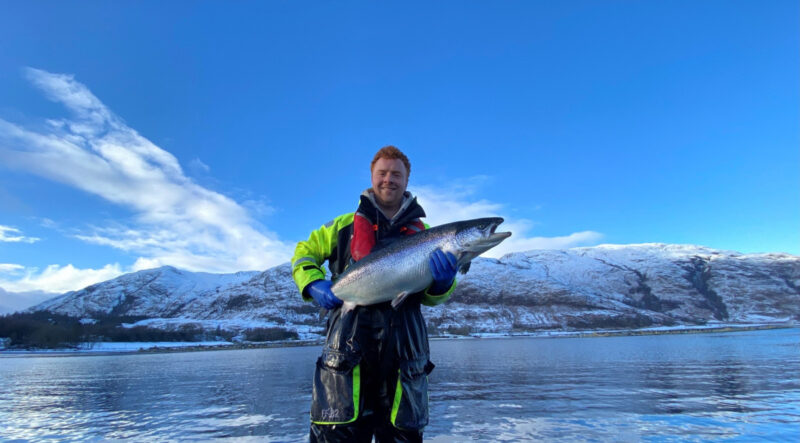As Canada dithers, nations move to expand aquaculture
Unlike Canada, which keeps bowing to anti-aquaculture activists, countries around the world are taking strident steps to expand seafood farming in their waters with new legislative frameworks.
By Fabian Dawson
SeaWestNews
A trio of seafood experts are calling on nations around the world to expand marine aquaculture that will increase sustainable food production and combat climate change.
The call comes as anti-aquaculture activists in Canada are ramping up their science-deficit campaigns to oust fish farmers from the oceans, despite voluminous evidence by government, industry and independent scientists that show their marine operations have minimal impacts on wild stocks.
“Marine aquaculture, the growing of plants and animals in our oceans, is an important source of nutrition – and, research indicates, an emerging climate change solution, said the authors of a recent article posted by the World Economic Forum.
“Yet it’s often neglected in broader conversations about achieving a regenerative, nature-positive food system, in part because of its perceived history of environmental degradation,” said the article authored by Robert Jones of the Nature Conservancy, Bill Dewey from Taylor Shellfish Farms and Barton Seaver, one of the world’s leading sustainable seafood experts.
“So many of us have a traditional vision of a farmer as a steward of the earth; as climate change alters our reality, those that grow food in the ocean could become the future stewards of our mostly blue planet.
“Consumers need to support sustainable aquaculture, just as farmers, governments, global agribusiness, investors and NGO groups will need to work together to realize the full potential of restorative aquaculture to feed people in a changing climate,” the article authors said.
The report noted that oceans cover nearly three-quarters of the planet, yet currently provides just 2% of the planet’s food.
“Not only is there room to grow here, there’s room to grow smart,” said the authors, pointing to a study which projected that if we were to farm seafood instead of land-based meat to fulfill the growing demand for protein, we could spare an area of land two times the size of India.
“And growing seafood instead of most other animal proteins also spares a huge amount of carbon. Most farmed seafood has about a tenth of the carbon emissions as beef,” the report said.
Unlike the government of Canada, which keeps bowing to anti-aquaculture activists especially in British Columbia, countries around the world are taking strident steps to grow sustainable projects in their waters.
The European Commission recently published its new Farm to Fork Strategy which recognised the role sustainable aquaculture can play in building sustainable food systems. The new strategy sets the path for EU aquaculture to grow into a competitive and resilient sector and become a global reference for sustainability by 2030.
The Australian House of Representatives Standing Committee on Agriculture and Water Resources has also released a report noting that the growth of the aquaculture industry will help meet domestic demand for seafood, boost exports and provide thousands of additional jobs, especially in regional areas.
In neighbouring United States, political rivals have come together to push for the development of the aquaculture industry with a bipartisan Bill – Advancing the Quality and Understanding of American Aquaculture (AQUAA) Act.
The U.S. has the ninth-largest coastline in the world but currently ranks 16th in the production of farm-raised seafood. It currently imports at least 85% of its seafood, about half from aquaculture in other countries.
The Washington, D.C.-based Consortium for Ocean Leadership (COL) estimates that the new legislation will lead to a doubling of U.S. aquaculture production to about 1 million tons and create an additional 50,000 direct and indirect jobs, assuming 20 direct jobs per 1,000 tons of seafood produced, and five jobs per 1,000 tons in equipment, feeds, processing, marketing, and food service.
Stronger America Through Seafood (SATS), which advocates for policies and regulations to boost aquaculture production, last week sent a letter to members of the US House and Senate advocating for increased marine aquaculture.
The letter, which was signed by more than 65 aquaculture supporters and academics, said expanding the US aquaculture sector will help meet increasing consumer demand for seafood while creating tens of thousands of direct and indirect jobs in coastal communities.
Across Asia in Japan, China, Vietnam, Indonesia, India and Singapore, plans are afoot with government support to farm the oceans for dependable, affordable and sustainable seafood.
Scotland, where salmon farming provides over 2,500 jobs and generates billion in revenues is looking at streamlining aquaculture regulations, following a first-stage review of the industry this month.
“Aquaculture is a significant contributor to our rural economy, providing well paid jobs in some of Scotland’s most fragile communities and will be an essential part of our green recovery and transition to net zero,” said rural affairs secretary Mairi Gougeon.
“Developing world-leading legislation for aquaculture is key to developing a sector that is both environmentally and economically sustainable.”
In Canada it’s a different story.
Canada remains the world’s only major farmed seafood producing country without modern national legislation specifically designed to govern a responsible and sustainable aquaculture industry.
The Canadian Aquaculture Industry Alliance (CAIA), has been consistently calling for a Federal Aquaculture Act and the government has said it plans to develop one to govern the seafood farming industry, which generates an estimated $5.16 billion in economic activity with 25,000 full-time jobs.
(Image courtesy of Mowi Scotland)

